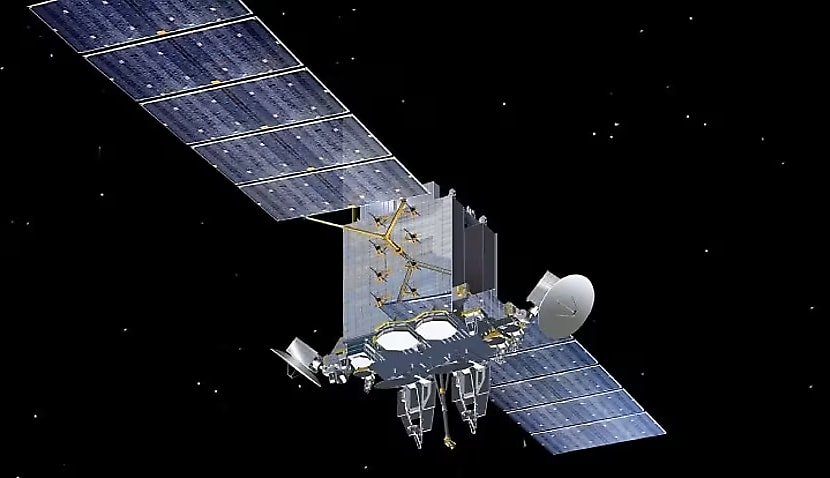Av-Comm chief executive Michael Cratt added the news came as a “shock and disappointment” and criticised the federal government’s “lack of support for Australian SME involvement in Defence programs”.
“It’s clear that the government see Defence spending as a cost and not an opportunity to invest in Australian capability, Australian businesses, and the Australian people,” he said.
Space Connect reported on Monday how the government would sensationally axe the “JP 9102” project to deliver a new military satellite communication capability for Australia.
Av-Comm was chosen as the sole ground station terminal supplier and was a key partner in Lockheed Martin’s successful bid, which was declared the winner last April.
The news significantly followed last year’s controversial cuts to the space sector, including abolishing the $1 billion National Space Mission for Earth Observation (NSMEO).
On Wednesday, Cratt released an 850-word response to the decision, lamenting the time lost to the project.
“AvComm was first approached by multiple prime defence contractors in 2021, to provide integral support for the ground segment piece of this program,” he wrote.
“Since Av-Comm was first approached, the team have spent the proceeding months and years tirelessly preparing the business to participate in the program.
“This transformation included the purchasing of a new office space to accommodate the planned addition of an estimated 50 new staff, which had to be fitted out in accordance with stringent specifications set forth by Defence.
“Av-Comm spent months overhauling internal processes, refining workflows, and funnelling internal resources to focus on facilitating this upcoming project.
“Av-Comm spent over $3 million preparing the organisation to an acceptable level for Defence. This included investing in a DISP membership, ISO accreditations, implementing new security protocols, and more.
“As a result, Av-Comm is now a more mature and defence-capable organisation, ready and waiting to participate in these large-scale defence projects.”
He added the federal government has a “chequered history with funding scientific research and development, particularly within the space industry” and argued there needed to be “open and transparent engagement with industry by the government before making consequential decisions”.
“Av-Comm aligns with the Space Industry Association of Australia’s (SIAA) advocacy for a more proactive role in the global space sector,” he said.
“Australia should not merely be a passive consumer of foreign space products and services; we have the potential to contribute significantly to space-based technology and capabilities.
“It is imperative that Australia is recognised as an active participant, rather than a convenient market for international primes to deploy their personnel, bypassing local industry collaboration.
“The current governmental approach lacks the strategic foresight necessary to foster and leverage strengthened domestic industry partnerships.”
It comes after SIAA chairman Jeremy Hallett said earlier this week that he believes companies will now think twice about working with Defence after JP 9102’s cancellation.
“While other OECD nations see sovereign space capability as critical to creating high-tech, high-value jobs and a military advantage, in our own backyard, we seem to be doing the exact opposite,” he said.
The news of the project’s axing was first reported in The Australian on Sunday night before being confirmed by a short, 187-word statement on Monday.
JP 9102 was only signed off just 18 months ago, with prime contractor Lockheed Martin beating big hitters including Boeing, Northrop Grumman Australia, and Optus to become the “preferred tenderer”.
However, it’s unknown whether Lockheed formally had the final contract signed after it entered the last formal stages of negotiation.
If approved, JP 9102 would have created more than 200 direct jobs, while Lockheed Martin itself pressed ahead with making key appointments for its staff to oversee it.
The plan would have seen the launch of a new geostationary satellite alongside multiple ground stations and an advanced satellite management system, creating secure communications that the ADF would have used.

Adam Thorn
Adam is a journalist who has worked for more than 40 prestigious media brands in the UK and Australia. Since 2005, his varied career has included stints as a reporter, copy editor, feature writer and editor for publications as diverse as Fleet Street newspaper The Sunday Times, fashion bible Jones, media and marketing website Mumbrella as well as lifestyle magazines such as GQ, Woman’s Weekly, Men’s Health and Loaded. He joined Momentum Media in early 2020 and currently writes for Australian Aviation and World of Aviation.

